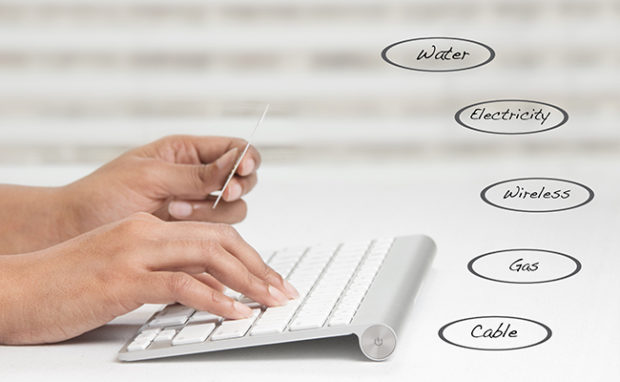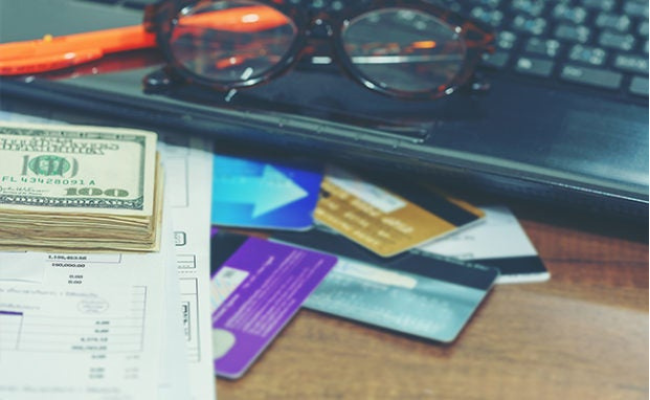Best Credit Card Utilization Calculator
Have you ever considered how your credit card spending could impact your credit score? Using a calculator to determine your credit card utilization rate can help you make smarter financial choices.
You can just read on to learn more about improving your credit score. It is always important to know more about how to calculate your credit card utilization rate. Also, understand your options and other smart choices you can make today.
What is Credit Card Utilization?
Would you happen to know what credit card utilization is? It is the ratio of how much is left in your credit card balances to the limit of your credit card is credit card debt. It’s a way to figure out how much credit you are using that’s available to you each month.
Some people might splurge on their credit card, but only using some or most of it can benefit your credit score.
How is this? The money left over on your monthly balance affects your credit card utilization rate. Which also influences your credit report. Having too low of a credit score even when you pay your bills on time could all come down to spending too much credit on one or more of your credit cards.
Are you ready for a Quick Quiz?
Factors Affecting Credit Card Utilization
When a person maxes out their credit card, most might think they’ll pay their bills on time. However, being a higher credit risk will influence other parts of your life that could negatively impact getting a loan. This is regardless of whether the loan is for a house, business, or other material possessions requiring a credit check. This will take months to bring your credit back up to a high enough score to get those loans.
Of course, all is not lost if you have maxed your card each time. Having a percentage of 30 or less would be ideal for making better financial choices. Having a low rate, like 30 or less, can show your future loan lenders that you can make smart choices. Also, you should always pay your bills on time. Some even pay more than once on a tab to help increase their low credit score by using this helpful tool.
You May Also Like: Improve Credit Score: Does Paying Off Collections Help?
Credit Card Utilization Rate Calculator
So, how do you calculate your very own credit card utilization rate? It’s straightforward since all you need to know is how much you have in your balance and the limits on all your credit cards.
For example, if you spent $400 and your credit card only gives you $1,000, you can easily calculate the ratio by dividing how much you paid by the total amount you are allowed to settle and multiplying that by 100. Therefore, the percentage of your credit card utilization is 40 percent.
You will have a higher percentage of credit card utilization rate if you spend more than $400. So, the lower your credit utilization is, the better off you are with your total credit score.
When a person has a low credit utilization, it portrays if you are spending the maximum amount of credit you are limited to each month.
Again, this is crucial to those who want to get a bigger loan for a house or small business since it portrays to the particular lender that you can handle money without going crazy overspending the maximum amount.
Of course, if you are worried about your overall credit card utilization rate, you can instill the same mathematical formula for your overall credit utilization rate. You can add all the money you currently have in each credit card balance in your name and divide that by the total credit limit, then multiply the answer by 100.
This will help you determine how much this could affect your Fico score. If you have one credit card with a high utilization rate, that could be the main one creating a lower credit score.
Check if you qualify in two simple steps
- Step 1 – Select your debt amount below to see if you’re eligible
- Step 2 –Answer a few quick questions & join hundreds of thousands of Americans on the path to becoming debt-free
You May Also Like: How to Pay Off Debt: 10 Ways to Kill Debt with a Low Income
What Is a Credit Utilization Ratio?
Credit utilization ratio, or credit utilization rate or percentage, is a financial term that refers to the percentage of your available credit that you are currently using. It measures how much of your credit limit you have utilized or borrowed.
To calculate your credit utilization ratio, divide the sum of your credit card balances by the mixed credit limits of all your credit cards. Multiply the result by 100 to get the percentage. For instance, if your credit cards have a total limit of $10,000 and your current balances total $2,000, your credit utilization ratio would be 20% (2,000 / 10,000 * 100).
The credit utilization ratio is a vital factor that affects your credit score. It is one of the key components credit scoring models utilize to evaluate your creditworthiness. Generally, a lower credit utilization ratio is considered better for your credit score.
Lenders and credit card issuers typically prefer to see a lower credit utilization ratio because it indicates that you are not overly reliant on credit and are managing your debts responsibly. On the other hand, a high credit utilization ratio may be seen as a sign of financial distress or an increased risk of default.
The generally recommended credit utilization ratio is below 30% to maintain a good credit score. However, a lower credit utilization ratio is better for your credit profile. You must keep your credit utilization ratio as low as possible to demonstrate responsible credit management. It can positively impact your creditworthiness.
You May Also Like: Best Credit Card Debt Payoff Calculator
What Will Influence Your Credit Score?
Debt consolidation can influence your credit score for the better. This is because it makes it seem like you already paid off those accounts you owed. Then, the debt consolidation comes up like a new credit account. This approach can be very beneficial to your credit score. Although, you should always remember to continue making payments on time. Every time so that it doesn’t lower your credit score.
Don’t check your credit score the first month after you take out debt consolidation. It could take time before this can alter your credit score.
We do not suggest getting other credit cards while you still pay off your debt consolidation. There might be better choices than this since you have tried to consolidate your debt efforts. But some people do this, so if you do, always ensure you continue paying both bills on time to help increase your credit score.
You May Also Like: 4 Best Starter Credit Cards
SUMMARY
Remember that credit card utilization is just one factor influencing your credit score. To maintain a strong credit profile, it is essential to practice other good credit habits, such as paying bills on time, keeping a diverse mix of credit accounts, and utilizing a credit card utilization calculator.
Understanding and managing your credit card utilization ratio is a valuable tool in your financial journey. By using a credit card utilization calculator and making informed decisions about your credit usage, you can optimize your credit score and pave the way for better financial opportunities in the future.
Frequently Asked Questions
Is it better to have a credit utilization ratio of 0%?
While it might seem logical to aim for a credit utilization ratio of 0% to show no credit card usage, it may not be the most advantageous for your credit score. Credit scoring models often prefer to see some credit utilization level to evaluate your creditworthiness. Using a small portion of your available credit, such as keeping a low utilization ratio below 10%, can demonstrate responsible credit usage and potentially positively impact your credit score.
How frequently should I monitor my credit card utilization ratio?
Monitoring your credit card utilization ratio regularly, at least once a month, is good practice. You can assess your utilization and make necessary adjustments to maintain a healthy ratio by staying aware of your balances and credit limits. Regular monitoring allows you to proactively manage your credit utilization and make informed decisions to impact your credit score positively.
Can a high credit utilization ratio be improved quickly?
Lowering a high credit utilization ratio typically takes time and consistent effort. However, you could use a few strategies to speed up the process. Paying down your balances, requesting credit limit increases, or spreading out your purchases across multiple cards can help reduce your utilization ratio faster. Avoid closing unused credit cards, as that may decrease your available credit and potentially increase your utilization ratio.
Sponsored Advertising Content:
Advertorial or Sponsorship User published Content does not represent the views of the Company or any individual associated with the Company, and we do not control this Content. In no event shall you represent or suggest, directly or indirectly, the Company's endorsement of user published Content.
The company does not vouch for the accuracy or credibility of any user published Content on our Website and does not take any responsibility or assume any liability for any actions you may take as a result of reading user published Content on our Website.
Through your use of the Website and Services, you may be exposed to Content that you may find offensive, objectionable, harmful, inaccurate, or deceptive.
By using our Website, you assume all associated risks.This Website contains hyperlinks to other websites controlled by third parties. These links are provided solely as a convenience to you and do not imply endorsement by the Company of, or any affiliation with, or endorsement by, the owner of the linked website.
Company is not responsible for the contents or use of any linked website, or any consequence of making the link.
This content is provided by New Start Advantage LLC through a licensed media partnership with Inquirer.net. Inquirer.net does not endorse or verify partner content. All information is for educational purposes only and does not constitute financial advice. Offers and terms may change without notice.




